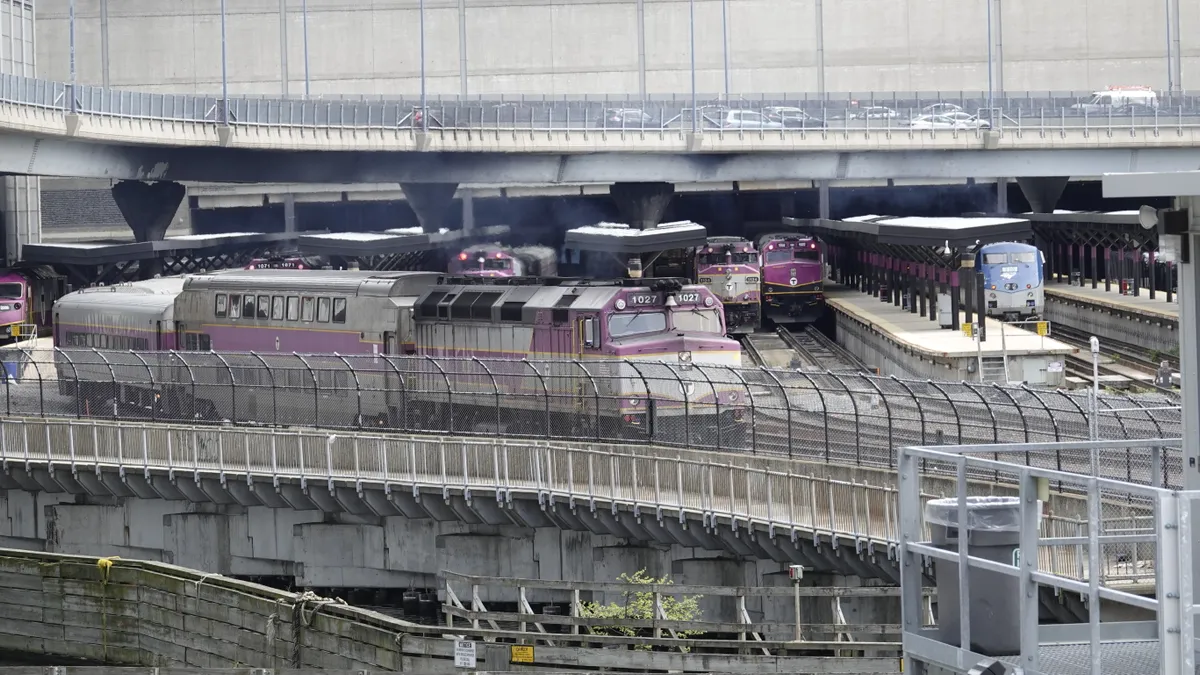The Massachusetts Bay Transportation Authority should convert its commuter rail system to a fully electrified, regional rail system, says a report issued June 1 by TransitMatters, a Boston-based group that advocates for improved public transportation in Massachusetts.
The MBTA serves eastern Massachusetts and Rhode Island on 12 commuter lines, operating diesel-powered trains from two main stations in the city of Boston: North Station and South Station. The TransitMatters report argues that “These diesel locomotives are expensive to maintain and produce black carbon emissions that contribute to greenhouse gas emissions and threaten public health.” TransitMatters recommends replacing those trains with self-propelled electric trains, which it says will be faster and more reliable.
The report envisions regional rail as a system using electric-powered trains to provide “high all-day frequency, faster trip times, and cheaper fares” than currently available. Trains would operate every 10 minutes, 24 hours a day, within the heart of Boston, with 15- or 30-minute frequencies further from the urban core, better serving low-income and environmental justice communities.
“If we want to spur the needed housing development, tackle congestion, and significantly cut transportation emissions through mode shift, making Regional Rail a reality is a must,” TransitMatters Executive Director Jarred Johnson said in a statement.
The group’s recommendations are similar to studies conducted by the MBTA in 2018 and 2019, which concluded with a slate of options including regional rail and system-wide electrification. The MBTA pegged the cost at $29 billion in 2020, or nearly $41 billion when adjusting for 2030 inflation.
“The MBTA remains strongly committed to Regional Rail Transformation in order to provide passengers with the rail service they deserve,” MBTA spokesperson Lisa Battiston said in an email. “MBTA staff are in the process of reviewing the final report’s findings. The MBTA appreciates the thoughts offered within TransitMatters’ report, and appreciates their support of regional rail efforts.”
But the MBTA is still busy complying with Federal Transit Administration safety directives issued last year following a spate of safety failures on its light and heavy-rail system and could face a budget deficit of over $400 million in fiscal year 2026 and beyond, according to a TransitCenter analysis.
Support for regional rail and electrification also comes from U.S. Rep. Seth Moulton, D-Mass., who laid out his ideas for Massachusetts rail transportation in a March memo. He recommends establishing the Providence, Rhode Island, line as a pilot for regional rail and electrifying routes along environmental justice corridors, followed by converting additional routes to regional rail.
And in an interview last month, Joseph Aiello, national field coordinator for the nonprofit Rail Passengers Association, called these measures “an absolute game changer.”












